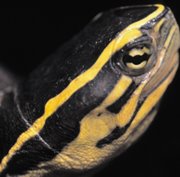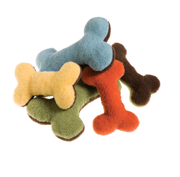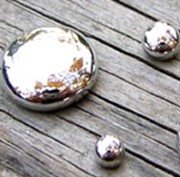
The world's annual consumption of plastic has increased from around 5 million tonnes in the 1950s to nearly 100 million tonnes. Virtually every piece of plastic ever made still exists.
Plastic has a huge environmental impact, and not only through pollution released through its creation, or its clogging of landfill sites. Vast amounts of plastics are ending up in our countryside and in our oceans, something that can have a devastating effect on wildlife. To give you some figures, the 2007 Great Canadian Shoreline Cleanup picked up:
-79,646 plastic bags
-31,732 plastic drinks bottles
-32,756 cups, plates, forks, knives, spoons
-27,994 straws and stirrers
Bear in mind that this is just a portion of the total amount collected. And that this is just what was actually washed up on shore. In Canada.
Although many plastics today are recyclable, according to the Environmental Protection Agency, in 2007 only 6.8 per cent of plastics were recycled in the US. The use of plastic is so thoroughly embedded in our daily lives that trying to revert to an entirely plastic-free world seems almost impossible.
One of the biggest advances that has been made to counter the plastic problem is the development of sustainable packaging. This includes bioplastics such as PLA (Polylactide Acid Plastic), which is made from plants such as corn and sugar cane via a process that uses less energy and emits less greenhouse gas than the production of traditional plastics. While there has been some concern over the abilities of recycling and composting centres to process some bioplastics effectively, there is hope that solving these problems can help reduce the amount of non-degradable plastics ending up in landfills.
So hats off to the packaging pioneers that are trying to make our world plastic-free:
Earthcycle
A Vancouver-based eco-packaging company, Earthcycle produces sustainable, compostable packaging made from palm fibre, which is a waste product left over from palm oil production. Products include fresh produce packs and take-out containers, with others in development. Earthcycle products are currently used in select Wal Mart, Publix, Safeway, Loblaws, Kroger and Wegmans stores.
Cargo Cosmetics - PlantLove
In 2007 Cargo introduced its PlantLove cosmetics range. The inner packaging, made entirely from corn, is biodegradable via composting, and has won awards across the board for innovation and environmental awareness. Lipstick outer cartons are made from 100 per cent post-consumer waste biodegradable paper, containing wildflower seeds - just plant the paper and flowers will grow. Cargo PlantLove products, including lipstick, eyeshadow and mineral foundation, are available at Sephora.
Plantic Technologies
An Australian bioplastics pioneer, Plantic Technologies uses corn starch to make biodegradable packaging (Plantic) which can be used in all manner of traditional plastics applications, such as flexible and rigid food containers. Plantic is certified Home Compostable and is already used for products from Marks and Spencer and Cadbury Schweppes.
But I've been saving the best for last...
Brand Image - The paper water bottle
According to the US National Association for PET Container Resources (NAPCOR), 2.7 million tons of plastic PET bottles hit US shelves in 2006. Of that 2.7 million tons, four fifths went into landfills.
To offer a solution to this problem, the design agency Brand Image has come up with an entirely novel idea - the paper water bottle. (Yes, paper.)
The 360 water bottle uses sheets of paper made from bamboo and palm leaves, compressed around a thin layer of PLA which acts as the barrier for water and oxygen. The design also enables the bottles to be transported in bulk without the need for any outer packaging. Any individual company branding would be made with natural dyes.
Brand Image hopes that they will be able to find homes for the 360 water bottle among the world's leading water suppliers. Let's cross our fingers.

Find more examples of sustainable packaging here - winners in the 2008 DuPont Awards For Packaging Innovation.
Watch the CBC's documentary Forever Plastic. (only available for viewers within Canada)
Want to reduce your plastic footprint? Find tips on how to limit your plastic use here.








No comments:
Post a Comment